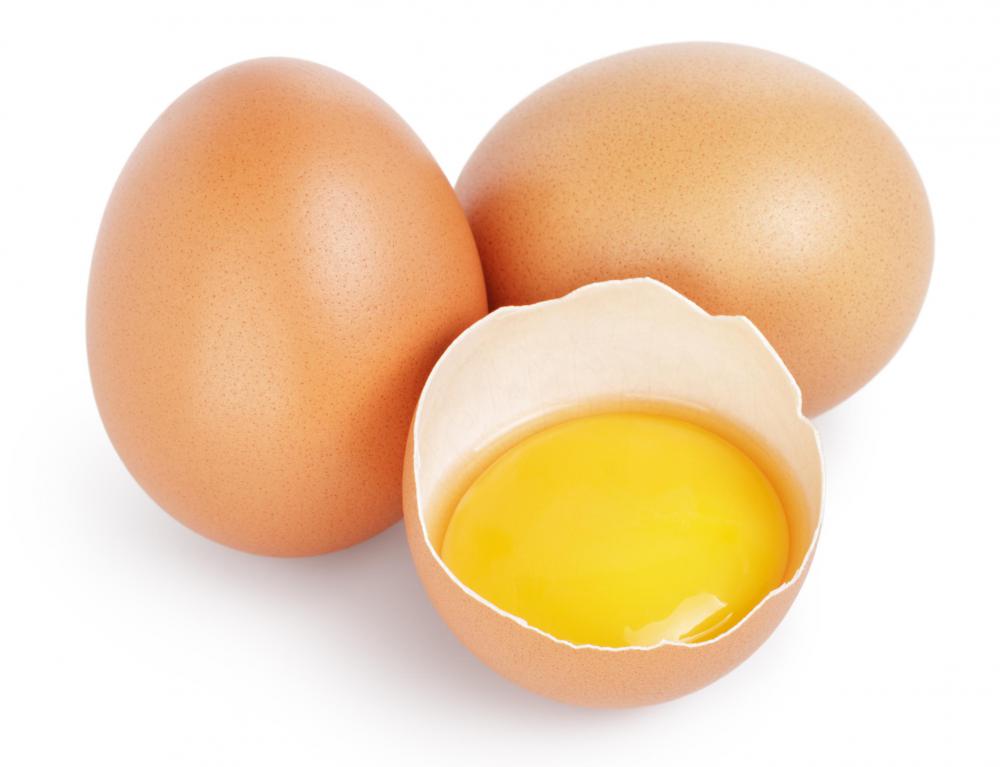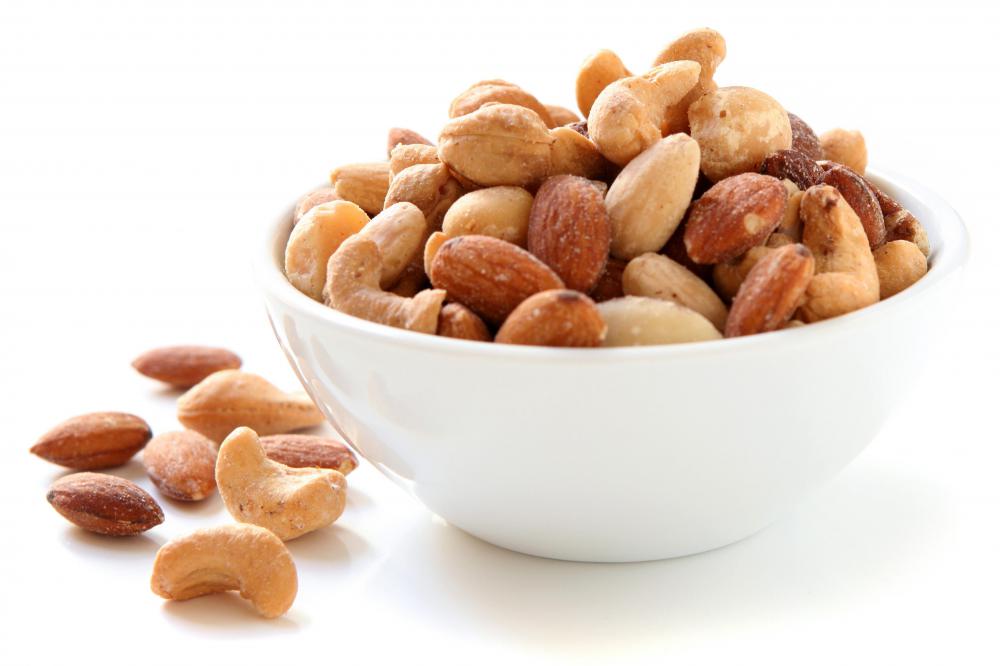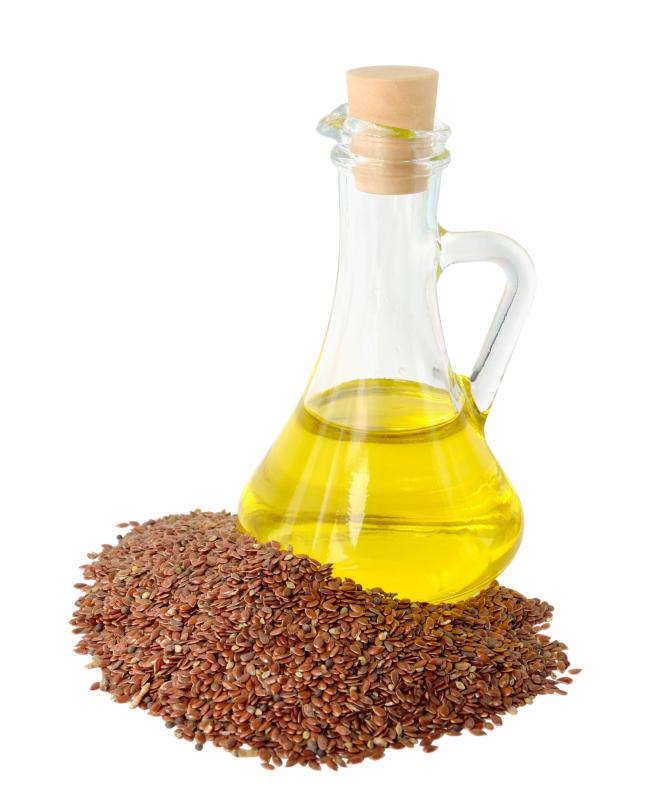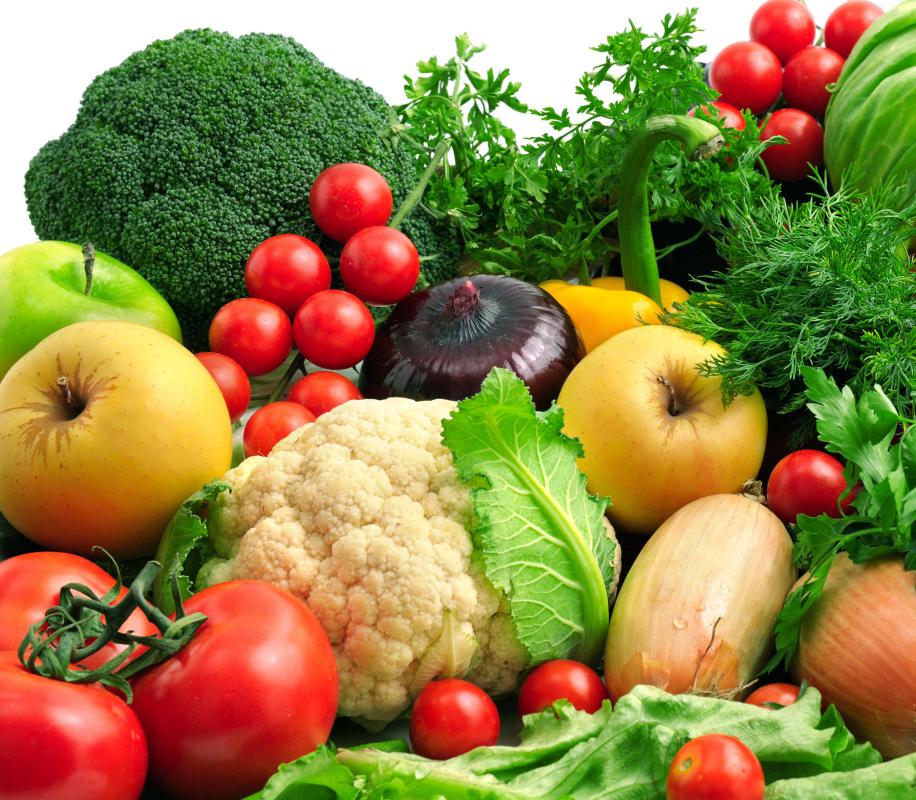At TheHealthBoard, we're committed to delivering accurate, trustworthy information. Our expert-authored content is rigorously fact-checked and sourced from credible authorities. Discover how we uphold the highest standards in providing you with reliable knowledge.
What is the Connection Between Choline and Inositol?
Choline and inositol are basic nutrients that are often considered members of the B-complex of vitamins. They work together to form lecithin, a type of lipid that is needed to form healthy membranes for all living cells in the human body. Increased memory function, cancer prevention, heart health, and hair growth are all health benefits of these nutrients.
The inclusion of both choline and inositol in the B-vitamin complex is not entirely accurate, because the body naturally produces both. However, the body sometimes does not produce enough of either to maintain healthy levels, and it is necessary to increase intake of foods containing lecithin, or lecithin supplements. Choline production levels are often suppressed during times of growth and development. Inositol is a product of glucose, so if an individual has issues with glucose levels, the inositol levels will also be incorrect.

Both these substances are important nutrients for brain development. Inositol has a calming effect on the central nervous system and is used to treat depression, anxiety attacks, and insomnia. Choline affects the areas of the brain responsible for memory function and learning. Research shows that choline can improve memory and may help prevent dementia, Alzheimer's disease, and age-related memory loss.

Choline and inositol might prevent cancer. Several studies have found that women with a high intake of choline have a lower risk of developing breast cancer. Similarly, researchers have found that phytic acid, the plant source of inositol, has anti-cancer properties. This could be why high-fiber, vegetable rich diets might ward off cancer.
Both choline and inositol play a role in heart health. Consuming recommended amounts of choline can lower levels of the amino acid homocysteine, which is a marker of tissue damage and also a recognized risk factor for cardiovascular disease. High intake of choline is also associated with reduced levels of chronic inflammation, which a key factor in heart disease. Inositol reduces blood cholesterol and also helps to synthesize phospholipids, which help the body to utilize fat. Inositol helps to prevent oxidation of low-density lipoprotein (LDL) cholesterol, which is a key precursor of potentially lethal hardening of arteries.

Promoting the growth of hair cells is another role of both choline and inositol. They promote the growth of healthier and stronger hair and also stabilize cell membranes to safeguard hair follicles from damage. Some believe that inositol in particular might play a role in preventing hair loss and baldness.
Choline and inositol can be taken together or individually as a dietary supplement. Their function may improve when taken in tandem, but their individual effectiveness does not depend on it. Neither of these nutrients have an established Recommended Daily Intake (RDI). Choline is found in food sources including egg yolk, soy, nuts, organ meats, cauliflower, lentils, oats and flax seeds. Inositol is found in beans, peas, brown rice, beef brain and heart, raisins, grapefruit and unrefined molasses.
AS FEATURED ON:
AS FEATURED ON:






















Discussion Comments
I take three meds that are anticholinergic. Is there a way or time I can take the meds that will have less of am impact on the binding of choline?
I am suggesting, that since neither choline or inositol have a recommended daily intake, that getting the supplement through nutrients found in the foods listed in the article is best. I wouldn't want to skip the choline and inositol benefits.
Post your comments